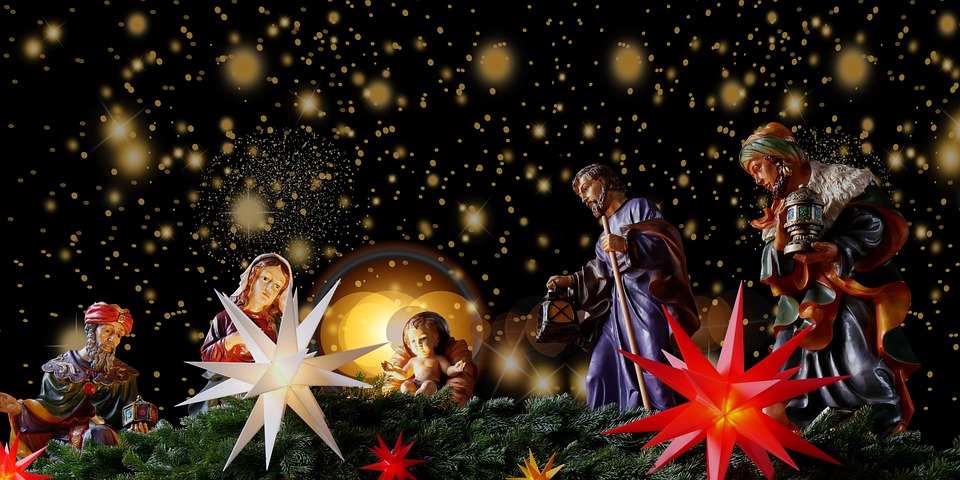
I’ve always loved stories that explore magical worlds, so when I saw Disney’s 2020 animated film Onward, something stirred in me. There was something about Onward that seemed both to transport me to another world and tell me more about my own.
Onward characters include mythical creatures from any good fairytale—centaurs, elves, fairies, wizards, unicorns, and dragons. There are maps and curses, magical quests and mighty swords, all in a world full of mystery and wonder. What makes Onward stand out is not just the whimsical story or imaginative setting; it’s the way the film subtly explores a profound shift in how we experience our very mundane, unmagical world.
Onward shows us a world that was once magical, but we soon learn that has lost most of its magic. The movie opens with a glimpse of the past—a time of glory and wonder, where magic was as natural as breathing. As time marched on, the inhabitants of this once-magical world began to prioritize efficiency, comfort, and control over mystery and wonder. Magic, once central to life, became a threat, then irrelevant, then forgotten.
The story centers on two brothers, Ian and Barley, who live in the midst of magical relics, but are too young to have ever experienced the magic first hand. On Ian’s sixteenth birthday he receives a gift that will invite them into a journey to recover the magic. Their quest is driven by the loss of their father and the hope that magic can bring him back; classic Disney. Ian, initially reluctant to believe in magic, is eventually compelled to embrace the longing in his heart to see his father one more time. His despair pushes him beyond the bounds of what he thinks is possible and into a world of spells suspending the natural order.
Ian and Barley’s quest to see their dad once is simultaneously a quest to undo the malaise and very normalization of the world in which they now live. Each element of their magical journey forces them to question the conventional wisdom of their modernized world and to think like wizards. Living as if the world is full of magic proves difficult when everyone else in the world has accepted the sterilization and standardization of a non-magical perception of the world around them.
Wizards who once used their staffs to conjure flames now reach for light switches. Elves, centaurs, and other magical beings now live in boring suburbs, working common jobs. Their extraordinary abilities, once a source of awe, have atrophied from disuse. Fairies no longer fly; they drive motorcycles. Dragons, once fierce, have become docile pets. Even unicorns, once majestic, are now little more than pests rummaging through trash. The wild, untamed world has been domesticated.
Onward helps us see that something akin to Ian and Barley’s world has happened in our own time and very real world.
This Secular Age
Philosopher Charles Taylor, in his monumental work, A Secular Age (2007), traces the last 300 years as a time when men and women moved from embracing the worldview of their religion to the strict secular, unmagical, world we know today. Onward mirrors this same movement acting as a kind of parable, placing us in a post-magical world where creatures long for something more. The movie’s evolution and characters’ deep longing is more than just clever plot devices; it’s a metaphor for the broader cultural shift that Taylor describes.
For centuries, humans experienced their visible portion of their lives, families, villages, and nations as part of a much larger cosmos, infused with spiritual significance and inhabited by forces beyond our control or understanding. The story of humanity promoted by religion was the most real, and poured meaning and purpose into every aspect of life. Family, marriage, vocation, morality, worship, and questions of life after death were all molded and formed by transcendent stories originating in religious texts like the Bible. The question wasn’t, “Is there a god?” but rather, “Which one do you worship?”
For centuries humans believed that rain would fall and wars would be won because their gods or goddesses controlled all elements and happenings of this natural world. They believed their worship of the right or wrong gods mattered. They connected every dot between their action or inaction with the action or inaction of beings with more power, more control, and a larger vision of the cosmos than they could see. Be it the Egyptians, the Chinese, or the Israelites, each had a vision of our world and beyond shaped by the transcendent.
Taylor demonstrates how people once delighted in creating symbols and images that brought the intangible world closer, pointing to something beyond. The art, in pictorial forms, and the stories, written or spoken, carried a culture’s narration of gods at work in the world. Floods, famines, victories, defeats, each carried a story, a narration of the human experiences shaped by transcendent interventions.
Like the characters of Onward, we too, feel the sense of “magic” lost. Since the dawn of time, humans have been animated and driven forward, not primarily by their simple abilities, but rather by their ability to sense the call of something greater than the world we can see and touch. Taylor grieves the sterilization of our world arguing that the forward progress of the last couple hundred years has only proved to dislocate the transcendent from common human experience. Like a house that has always been two-stories tall suddenly having the second floor ripped off, our world, and social imaginary, has been deconstructed, leaving our world broken rather than whole.
Magic, in Onward, represents the characters’ connection to powers, abilities, and ways to engage the world that are unseen by the human eye. The old world, the one Ian and Barley are seeking to recover, was full of wonder, mystery, adventure, danger, and risk. Every character is unique and uniquely gifted to access different elements of the magical world. Wizards use staffs to cast spells while the mighty Manticore has the strength of the lion and the wings of an eagle. So how could a world of magic help us connect more to our own world, our selves, and the God whom we worship?
The Christian Worldview
The Christian Church’s journey has been similar, particularly in the West. Our stories of old describe a world with our God as the constant force moving this world from creation, through the fall, into a beautiful and long depiction of redemption and rescue, all the way through to the coming consummation. European cathedrals were built to lift eyes and hearts to realities unseen and yet hoped for. Their lavish windows and architecture depicted, in greater detail, the movement of this journey from creation to consummation. Church ceremonies and royal coronations boasted the movement of God’s hand to bring about new rulers, new seasons, and a vision for a hopeful tomorrow and beyond.
Over time, however, this enchanted world gave way to what Taylor calls the “immanent frame”—a way of understanding our world that confines reality to the here-and-now, the material and the measurable. It’s a world where everything can be explained by natural causes, and the idea of a transcendent dimension beyond the material is no longer taken for granted but is, at best, one option among many, maybe even dangerous or harmful.
In Onward, as the characters embrace the conveniences of modernity—light switches, cars, fast food—their connection to the magical, the non-immanent, fades. The world becomes safer, more predictable, and more controllable. The movie portrays the world, in its more manageable state, as empty, stripped of the wonder that once made it vibrant. This echoes Taylor’s observation that in a secular age, while we have gained unprecedented control over our environment and lives, we have also lost something essential—a sense of the transcendent, the divine, the mysterious.
Taylor speaks of “subtraction stories,” describing how humans have confined themselves to a secular and immanent vision of the natural order—birth, life, death, nothingness. If the immanent frame is all there is, then the world shrinks down to the days of our lives and nothing more. In Onward, Ian and Barley’s needs exceeded their capabilities. They long to see their dad again and are given a hint that it may be possible, but only if they are willing to engage the old, magical, ways of doing things. Without the yearning to transcend their common experience, to reach beyond the grave, who knows if they would have noticed the lack of magic in their world? This feels familiar in our own world. It seems that people tend to feel secure without the intrusion of transcendent gods or beliefs, until they are faced with god-sized problems such as deeper meaning, the need for hope when things are difficult or unjust, or perhaps the issue of death.
What we “subtracted” from the world by lopping off of the transcendent seems to unburden us in a certain sense. Life is less complicated and less demanding. We are more free to live in ways that align with the passions of the heart or genius of the mind.
Or, so we think.
When we are our own gods, we make the rules, albeit more collectively than we care to admit. We set the standards. We cast the vision for our good lives. What we fail to see, however, is our “subtraction” of God is also a subtraction of power. When our own capabilities bump up against our limits, we have no one to ask for help.
As Ian and Barley venture into the unknown, they uncover relics of the past—magical artifacts that still hold power, despite being forgotten. They find maps that now function as coloring pages for kids at the local diner which turn out to be maps to the magical items they seek. They uncover worlds of old hidden just beneath the surface of the parking lots covered over with fresh asphalt. The writers continue to press into the idea that the remaking of the magical world into a sterilized, efficiency driven modern age is but a thin veil that is waiting to be torn open.
Even in our world dominated by the immanent frame, traces of the transcendent remain. These veiled relics and artifacts symbolize what Taylor calls the “haunting” of the secular age. Whether we like it or not, the transcendent has left its mark on human history. In our surroundings, we are confronted by hauntings on every corner and in every season. Our churches and cathedrals lavish our hearts with beauty and stories of old inviting us to believe in a God of the ages. Our Christmas songs are full of wonder and hope. Moments of silence for the dead beg our attention and act as though someone or something may be able to speak into the silence. Our ceremonial prayers to begin ball games, even our pledge of allegiance—all whisper of times past when the transcendent was at hand.
But it’s not just the larger story that haunts our secular(izing) culture. Our micro-narratives, the stories of our lives and our own experiences are full of feelings and happenings that cannot be fully explained by science or reason—moments of awe, beauty, love, longing, and belonging that point beyond themselves to something greater. We are swept up in a longing to believe that all beauty in creation has an artist waiting to be recognized for his work. We long for the natural order to be suspended in ways that make cancer go away, sight come back to the blind, and the impossible, possible as we face hard things in the world.
So what? Is there anything to do to slow or reverse the secular age in which we live?
Reimagined Hope
Onward invites us to imagine a world where magic still exists, for us, where the divine is still present, even if hidden just beneath the surface. It’s a call to rediscover the wonder that our secular age has tried to suppress. The film also leaves us with a challenge: to reconsider the way we see our world. Have we, in our pursuit of comfort, control, and efficiency, lost something essential? Have we forgotten the magic that once infused our lives with meaning and purpose?
There are a few things I think could be helpful as we internalize this Disney parable and begin to make sense of our own world, devoid of the magic it once held.
First, as we watch Ian and Barley’s journey, we are reminded that our own world is full of relics from a time when the transcendent was not just a possibility, but the reality that vivified our immanent existence. Perhaps it is wise to pay attention to these whispers, these sign posts, these voices from beyond and allow them to more steadily shape our way of being.
One in particular that we observe in our church is the liturgical year. For centuries Christians used the liturgical calendar to guide their meditations, reflections, singing, feasting, and even their demeanor while journeying through the life of Jesus, annually. Rather than beginning our year like the rest of our world, with the turn of the calendar, we begin with the season of Advent, the first coming of Jesus. We allow the humble, incarnate, beginnings of our Jesus shape the season we all know to be Christmas. We let the early sunset and the present darkness remind us that our world is indeed dark, cold, and in great need of a great light. We walk through advent, lighting one candle per Sunday to envision the growing hope of the light, warmth and grace of Jesus that will soon burst onto the scene. By the time we reach Christmas Eve, we have brought the brass and the choir, the bells, the children, all together into a space of worship to announce to the world, “No more let sins or sorrows grow, nor thorns infest the ground, he comes to make his blessings flow far as the curse is found!” And this is just the beginning of our seasonal adherence to the life, death, resurrection, and ascension of Christ that speaks words of hope into the darkness.
There are whispers of the transcendent in so many places and spaces of our modern world. Many are more subtle than what I described here, but nonetheless, they all beckon us to move out of, what Taylor calls, the “malaise of modernity.” They all disrupt us just enough to make us wonder if there is more than what we can now see. Or, in the words of C.S. Lewis,
At present we are on the outside of the world, the wrong side of the door. We discern the freshness and purity of morning, but they do not make us fresh and pure. We cannot mingle with the splendors we see. But all the leaves of the New Testament are rustling with the rumor that it will not always be so. Someday, God willing, we shall get in. (The Weight of Glory – 1942)
Second, we live in a world where, as Taylor puts it, we experience the “cross pressures” of the transcendent and immanent world colliding. We are regularly asked to live in a world that dismisses external sources of hope, meaning, justice, and love, and in the same breath are told to value each of these things in a meaningless world. Said another way, the modern world untethered humans from meaning and purpose by killing the gods, but has now told us that we must live as if everything matters and we are responsible for what happens to the world. The lack of rational consistency in such a claim is bound to cause people to question their own existence and their responsibility towards others.
Onward illustrates these collisions as the magic and mundane interact, and clash over and over again. Throughout the film we find Ian wrestling with both the impossibility of magic and his longing to be swept up in the power he cannot see. We do well to anticipate these “cross pressures” both for ourselves and others.
People wake each morning to endless to-do lists, pressure from their places of work to get more done, make more money, work longer hours and yet the larger cultural narrative is, “Ultimately, everything comes to dust and has no enduring meaning or value.” We are all children of Sisyphus, pushing our little stones up a mountain only to have the same task tomorrow.
Christianity offers a better story. Toilsome as the work is, vegetables grow up alongside the thorns and thistles. Our work provides for us and for others. It is a part of our lives and a part of the larger story, but it is not the whole. We wake to to-do lists needing attention but not before we receive attention from the creator of the universe who also calls us sons and daughters. He pours his love into our hearts reminding us that we were crafted in his image with all sorts of capabilities to manage, maintain, and even cultivate good things in this broken world. And he also tells us that we are not alone, he is coming again, and all things will, one day, be made new.
More and more in American culture many assume that Christianity, and similar assumptions of a spiritual world beyond our own, are obsolete. These notions now rest safely outside of the modern person’s plausibility structure. Which means that when the “cross pressures” hit our secular neighbors, they will have nothing to pull from to make sense of these experiences. These moments may bring about fear, despair, or perhaps a desire to escape. But what a gift it may be to have Christian friends and colleagues in these moments of bewilderment.
1 Peter 3:15 says that Christians should, “Always be prepared to give an answer to everyone who asks you to give the reason for the hope that you have. But do this with gentleness and respect.” Whether it be in moments that feel miraculous or in moments of pain and loss, Christians have words to say when the secular age must remain silent. We have a story that reaches back further and stretches forward longer than those offered in the immanent, secular world. It’s good to have these stories at the ready when the “cross pressures” of this age come to bear on others.
Finally, one of the markers of the secular age is how lonely it feels for so many. Our experience of secularism has not only created distance from the transcendent, but also from one another. There are lots of factors at play in the movement towards a lonely and isolated life, but one that stands out is our growing independence through the gifts of technology. Our gadgets are making life more efficient, more comfortable, more accessible, but not necessarily more human. The transactional nature of our lives, devoid of the necessity of personal interaction reminds us of the sort of world we inhabit. It is highly efficient, moves at a fast pace, can meet your immediate needs of food, shelter, and clothing, but may miss your heart.
The secular age is lonely by nature, and people are relational by nature. The God of the Bible makes clear that human beings were made in his image and therefore, relational as he always has been. Our willingness to be humbly present to others in our secular age will whisper to their souls that they were made to belong. Just as Ian and Barley find the gift of brotherhood as a part of the restored magic in their lives, we, too, find the malaise of modernity beginning to lift, like the dissipation of a heavy fog, as we lean into personal and intimate spaces where people have felt alone for so long. As Dr. Curt Thompson says, “We all are born into the world looking for someone looking for us, and we remain in this mode of searching for the rest of our lives.”
The Christian story makes belonging to God and others essential and central to the human experience by making it the highest priority of Jesus. The goal of His person and work is the rescue, reconciliation, and restoration of his people, to their God, to themselves, to others, and to the world he made for them. As believers, we can be to them a foretaste of the work of Christ through our presence, grace, and love. And along the way, we will find that our lives are more full, too, as we journey with others towards a recovery of the magic of belonging in the Kingdom of God.
Onward?
Onward, this parable for secularity, doesn’t get us all the way to the God of the Bible, but it gives me hope. Hope that I am not alone in mourning the deconstruction of the old world. Hope that the common grace of God is at work in the lives of artists even in Disney’s acclaimed writing rooms. Hope that there is a God and that he has truly written eternity on our very hearts (Ecclesiastes 3:11) and in doing so, will not let us succumb to the malaise of this modern age.
In the end, Ian and Barley find a new way of life in their world. They do not get all that they wanted, but there is a bright and beautiful way Onward in their lives. Their friendship grows in ways that will bring you to tears. And their quest infects the rest of their town! The magical creatures regain their delight in the old ways of living, vivifying their city, bringing a renewed zest for life from all their mythical neighborhood friends. Perhaps a world like ours could be similarly infected by the hope of the Gospel of Jesus.
May God use stories like Onward, and philosophers like Charles Taylor to stir our hearts, to make us restless for the magic we have lost, and to draw us back to Himself, the source of all wonder, all beauty, and all life.
The Reverend Tanner Fox is an associate pastor at First Presbyterian Church of Orlando, Gotham Fellow, and currently pursuing a masters in Christian counseling at Gordon Conwell Theological Seminary.


